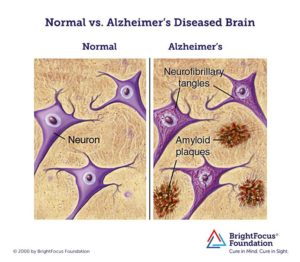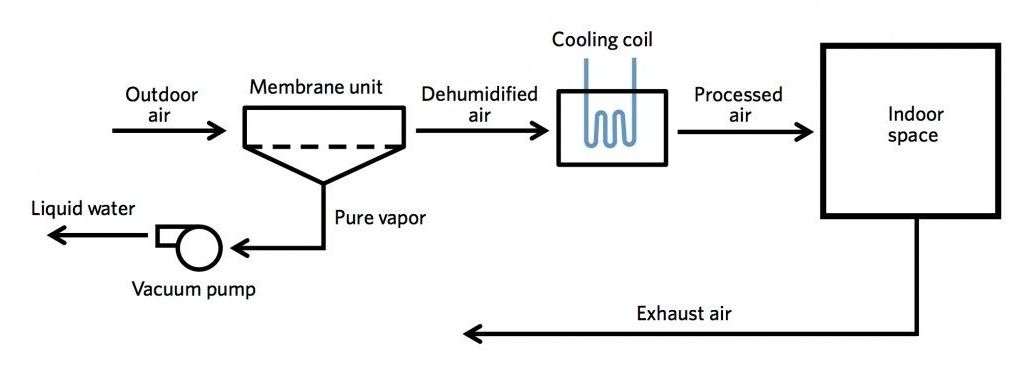Page 9673
Jul 12, 2018
Internally, NASA believes Boeing ahead of SpaceX in commercial crew
Posted by Michael Lance in category: space travel
Based on NASA’s “schedule risk analysis” from April, the agency estimates that Boeing will reach this milestone sometime between May 1, 2019, and August 30, 2020. For SpaceX, the estimated range is August 1, 2019, and November 30, 2020.
Both of the companies are well behind schedule, forcing the agency to scramble.
Jul 12, 2018
Deletion of BACE 1 Enzyme Reverses The Symptoms of Alzheimer’s
Posted by Nicholi Avery in category: neuroscience
The abnormal accumulation β-amyloid peptide is the leading candidate for the cause of Alzheimer’s disease. Alzheimer’s disease is currently ranked the 6th leading cause of death in the United States while some statistics claim it may rank as high as the third leading cause of death.
What is Alzheimer’s disease?
Alzheimer’s is a slowly progressive disease that causes the loss of memories and cognitive function. It is the most common form of dementia and accounts for 60 to 80% of cases.
Continue reading “Deletion of BACE 1 Enzyme Reverses The Symptoms of Alzheimer's” »
Jul 12, 2018
The Hunt for Earth’s Deep Hidden Oceans
Posted by Genevieve Klien in category: futurism
Water-bearing minerals reveal that Earth’s mantle could hold more water than all its oceans. Researchers now ask: Where did it all come from?
Jul 12, 2018
Minoring in the majors
Posted by Nicola Bagalà in categories: biotech/medical, life extension
It’s in a bad taste to say that other global issues are more urgent than ageing, when pretty much all global issues—ageing included—affect the life, and the quality of life, of many people.
Suppose you’re in your mid-seventies, and you find out that your aortic valve doesn’t work very well. Undergoing a replacement operation—nowadays, a relatively simple and safe procedure—is not only going to help you with your unpleasant episodes of fatigue, chest pain, and dizziness, it may well save your life, minimizing your risk of sudden cardiac arrest.
Your doctor suggests that you undergo the procedure and sends you to a surgeon for the operation; however, when you get there, the surgeon starts yelling at you that, rather than using resources to replace your valve and extend your life, we should fund initiatives to save children in poor countries, build health clinics, train midwives, and fight for equal opportunity and for women’s rights. He then goes on rambling that, until these issues are addressed, he doesn’t want to hear about extending your natural lifespan—after all, since you’re in your mid-seventies, you’re well above the world’s average lifespan; he shoos you and your family out and slams the door on you.
Jul 12, 2018
These anti-aging pills look like they’re actually working
Posted by Bill Kemp in categories: biotech/medical, life extension
Pills hailed as the first real “anti-aging” drugs inched a little closer to the market after a study found they cut the number of respiratory infections in the elderly by half.
The drugs: The pills act on an aging-related pathway called TORC1. Inhibiting this pathway “has extended life span in every species studies to date” (like mice and worms), according to Joan Mannick, who lead the study for drug giant Novartis.
Will humans live longer, too? Maybe. But that will take time to figure out. For now, what’s known is that giving people 65 and older these drugs seems to boost their immune function. Elderly people taking the drugs got about 40 percent fewer colds or bronchial infections. About 264 people got the drugs over six weeks and then were tracked for a year.
Continue reading “These anti-aging pills look like they’re actually working” »
About 40 percent of all the energy consumed by buildings worldwide is used for space heating and cooling. With the warming climate as well as growing populations and rising standards of living—especially in hot, humid regions of the developing world—the level of cooling and dehumidification needed to ensure comfort and protect human health is predicted to rise precipitously, pushing up global energy demand.
Much discussion is now focusing on replacing the greenhouse gases frequently used as refrigerants in today’s air conditioners. But another pressing concern is that most existing systems are extremely energy-inefficient.
“The main reason they’re inefficient is that they have two tasks to perform,” says Leslie Norford, the George Macomber (1948) Professor in Construction Management in the Department of Architecture. “They need to lower temperature and remove moisture, and doing both those things together takes a lot of extra energy.”
Jul 12, 2018
Public Health Officials Warn This STD Could Become a Superbug
Posted by Genevieve Klien in categories: biotech/medical, health
Sexually transmitted infections can be worrisome and embarrassing, but with a few notable exceptions, most of them are quite treatable these days. Unfortunately, a new one may be on the rise. British public health officials say that Mycoplasma genitalium, a bacterial infection known as MGen for short, could soon become immune to antibiotics. If this happens, the bacterium would become what’s known as a superbug, the growing class of bacteria that have developed resistance to antibiotic drugs.
The bacterium, which can live in humans’ urinary and genital tracts, is transmitted through sexual intercourse. Women infected with the bacterium can experience pelvic inflammation and cervical inflammation, while men can experience inflammation of the urethra. An infected patient would feel these symptoms, generally speaking, as pain. Perhaps most disconcertingly, though, sometimes the infection will not cause any noticeable symptoms, meaning that an infected person can transmit it without even realizing that they’re doing so. If the infection is left untreated for too long, it can cause female patients to become sterile.
In response to the emerging threat posed by MGen, the British Association for Sexual Health and HIV on Sunday issued its draft guidelines for dealing with MGen. The organization also warned that antibiotic-resistant MGen could become much more prevalent in the coming years.
Continue reading “Public Health Officials Warn This STD Could Become a Superbug” »
Jul 12, 2018
How to build synthetic DNA and send it across the internet
Posted by Klaus Baldauf in categories: biotech/medical, computing, internet
Biologist Dan Gibson edits and programs DNA, just like coders program a computer. But his “code” creates life, giving scientists the power to convert digital information into biological material like proteins and vaccines. Now he’s on to a new project: “biological transportation,” which holds the promise of beaming new medicines across the globe over the internet. Learn more about how this technology could change the way we respond to disease outbreaks and enable us to download personalized prescriptions in our homes.
Jul 12, 2018
Transmetropolitan: Relevant or Rose-Colored Glasses?
Posted by Derick Lee in categories: environmental, futurism
It’s a fantastic comic that holds up well as a story for a number of reasons. It’s cyberpunk without the genre’s trademark dinge: Robertson, Ramos, and colorist Nathan Eyring deserve a lot of credit for making a future packed with information overload, but not obscured by smog or gloom or perpetual rain. It’s also genuinely funny. Angry Warren Ellis is gifted at turning the combination of rage, foul language, and body parts into something beautiful. It’s also appropriately cynical, and I think this is where a lot of the comparisons to the present day come from.
Holy mother of God, Transmet is over 20 years old. But is it still sharp commentary, or a relic of its time?

Continue reading “Transmetropolitan: Relevant or Rose-Colored Glasses?” »


















